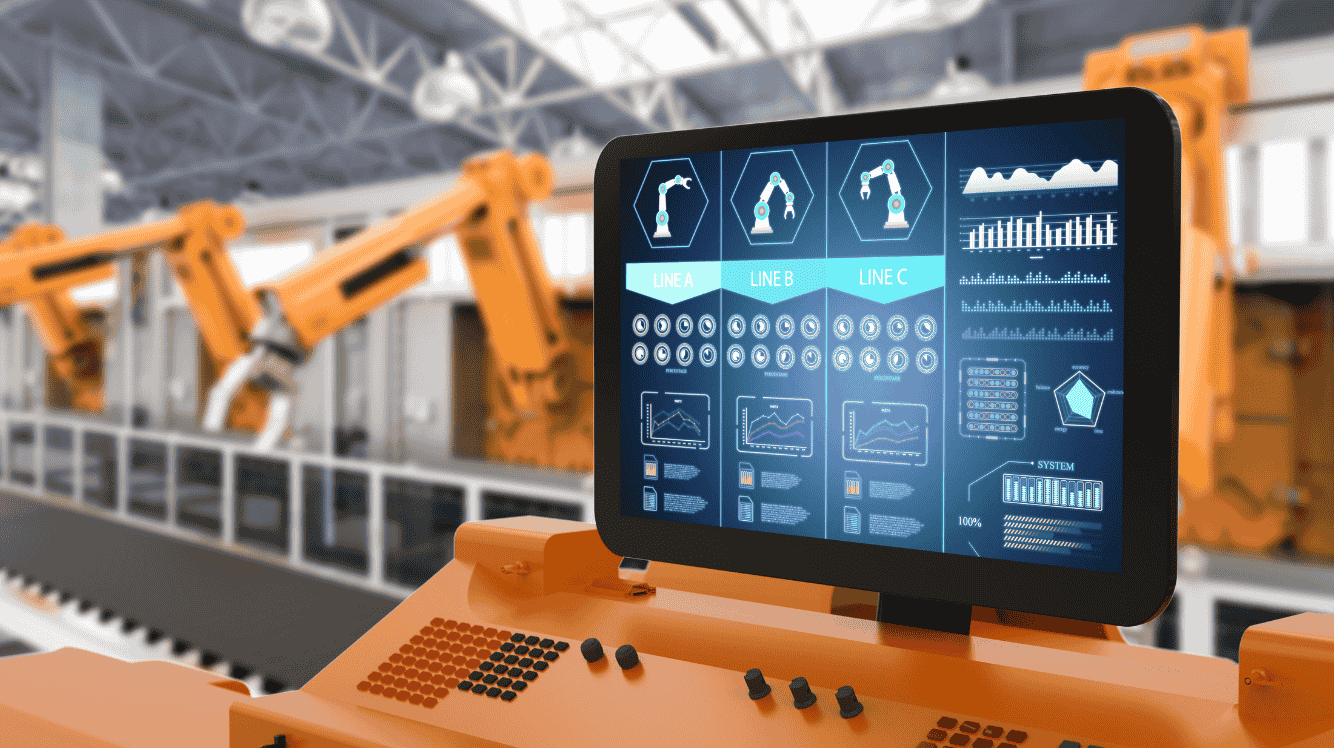
Automation is the key concept for the industries and is growing in value among manufacturing industries, making industrial automation more essential than ever. With the convergence of machines, robotics, high-end CNC controllers, and smart systems, industries are revolutionizing production processes with advanced industrial automation equipment.
With many years of experience, FANUC is empowering manufacturers with enhanced productivity, cost savings, and world-class quality.
The global transition towards automation is irrefutable; industries report that the global industrial automation market is expected to grow consistently, with India being one of the quickest adopters.
So, what are the benefits of industrial automation for manufacturers?
Let’s explore the top 10 advantages of industrial automation and why companies across industries are making it a priority.
One of the major benefits of automation is that it can work 24/7 without fatigue. In contrast to manual labor, robots and CNC equipment can operate round-the-clock, providing better production levels and faster cycles.
Automated systems also reduce downtime by eliminating bottlenecks, meaning industries can achieve deadlines better.
Owing to FANUC's advanced robotics and CNC controllers, manufacturers have smooth operations that maximize overall plant productivity, especially with the use of different types of industrial robots. With regular workflows, businesses achieve higher output without jeopardizing quality.
Consistency of product quality is critical for manufacturing, and it is achieved every step of the way by automation. CNC machines and robot systems employed by automation are programmed to perform tasks with great accuracy, leaving no scope for errors and defects.
Modern manufacturing automation systems also include automated inspection tools and self-diagnostic facilities, often supported by different types of robot arms for higher accuracy.
These systems guarantee that only defect-free products reach the market, protecting brand reputation and customer satisfaction.
Cost savings is yet another important advantage of industrial automation. Automated systems reduce labor costs, conserve energy, and make efficient use of material. Through the reduction of rework and product scrap, businesses save substantial amounts in terms of production costs.
FANUC enables industries to realize quantifiable returns on investment through the provision of real-time monitoring capabilities. The systems monitor performance, energy consumption, and the health of machines, which allows manufacturers to increase profitability without compromising operation costs.
Industrial settings usually subject workers to dangerous, repetitive, or physically strenuous work. Automation eliminates the dangers by sending robots to work on duties that include heavy lifting, toxic chemicals, or exposure to extreme temperatures.
Some automation systems are designed with safety as the primary component, minimizing workplace accidents and allowing workers to engage in safer, more imaginative work. Not only is this better for workers' well-being, but it also enhances workplace ergonomics as a whole.
Accuracy is not negotiable when it comes to manufacturing automation. Sophisticated CNC controllers and robotic machines are able to hold tight tolerances over thousands of production cycles. It is virtually impossible to do that manually.
FANUC's leadership in CNC technology means that manufacturers can create precision components of exact dimensions with high quality, less waste, and consistent reliability. Aerospace, automotive, and more industries rely on this precision for mission-critical applications.
Contemporary markets require rapid conversion to new product designs, materials, and customer requirements. One key benefit of industrial automation is scalability, that automated systems can quickly adapt to varying production capacities or process demands.
You will get the scalable solutions to match a broad range of business needs, from entry-level robots to large-scale integrated automation systems.
Utilization of resources is one of the lesser-known advantages of automation. IoT and analytics-powered machines optimize energy usage, materials, and machine efficiency.
FANUC incorporates IoT-based monitoring into its systems, enabling manufacturers to reduce downtime and waste. Using just what they need, companies not only save money but also contribute towards sustainability goals.
Automation thus proves to be a wise investment for profitability as well as environmental stewardship.
Manual processes are meant to make errors, particularly when processes are repetitive or complicated. But with the automation? Perhaps the greatest is the reduction of human error. Automated systems perform tasks according to programmed steps repeatedly, with no margin of error in each cycle.
For manufacturers, that means fewer errors, less rework, and a more efficient production line. FANUC's solutions ensure reliability, allowing industries the assurance to ship perfect products to customers.
Automation is no longer confined to a single industry or product type. Modern systems are very versatile, able to automate multiple product lines, processes, and industries.
Industry versatility enables them to act fast to respond to changing market demands, guaranteeing long-term competitiveness.
With Industry 4.0, data is just as precious as raw materials. Automation systems provide real-time intelligence into machine operation, energy consumption, and production efficiency. With predictive analytics and maintenance, breakdowns are avoided before they occur.
IoT-based solutions give manufacturers actionable information, allowing them to make proactive decisions. From maintenance scheduling to process upgrades, data-driven operations help industries stay future-proof.
The advantages of industrial automation are very much predicted, as it increases productivity, has uniform quality, enhanced safety, offer cost reduction, and intelligent decision-making.
With a rich heritage of CNC controllers, robotics, and automation solutions, FANUC India is at the forefront in enabling manufacturers to adopt this change.
Whether you are an SME or an industry player, FANUC has solution-oriented offerings that deliver precision, flexibility, and long-term profitability.
1. Can industrial automation be implemented gradually, or does it require a full factory overhaul?
Industrial automation can be introduced step by step. Businesses often start with automating specific tasks or production lines before scaling up to fully integrated systems.
2. What is the average payback period for investing in automation?
The payback period varies depending on the size of investment and complexity of the system. Many companies see returns within 2–5 years through savings in labor, reduced waste, and higher output.
3. Does automation make manufacturing more sustainable?
Yes. Automation helps reduce energy usage, minimize material waste, and improve efficiency, all of which support sustainable manufacturing practices.
4. What happens to workers when factories adopt automation?
Workers typically transition from manual, repetitive tasks to roles in programming, supervising, and maintaining automated systems. Upskilling and training become essential for long-term career growth.
5. Is automation suitable for small and medium-sized enterprises (SMEs)?
Absolutely. Many SMEs adopt partial or flexible automation—such as CNC tools, robotic arms, or packaging machines—to boost productivity without requiring massive investment.
What is Industrial Automation? Definition, Meaning, and Types Explained
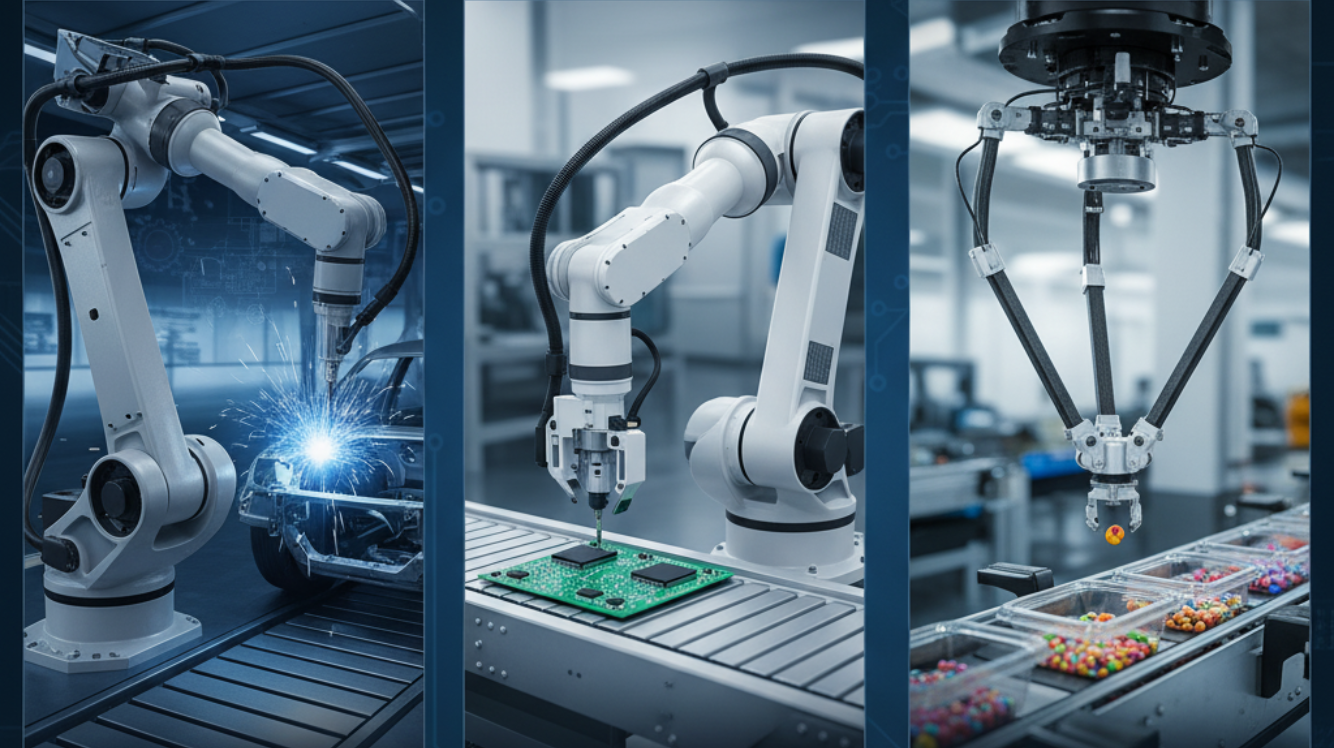
Discover various types of robotic arms used in industries like automotive, electronics, and packaging. Compare articulated, SCARA, delta, and cobot designs.
Know More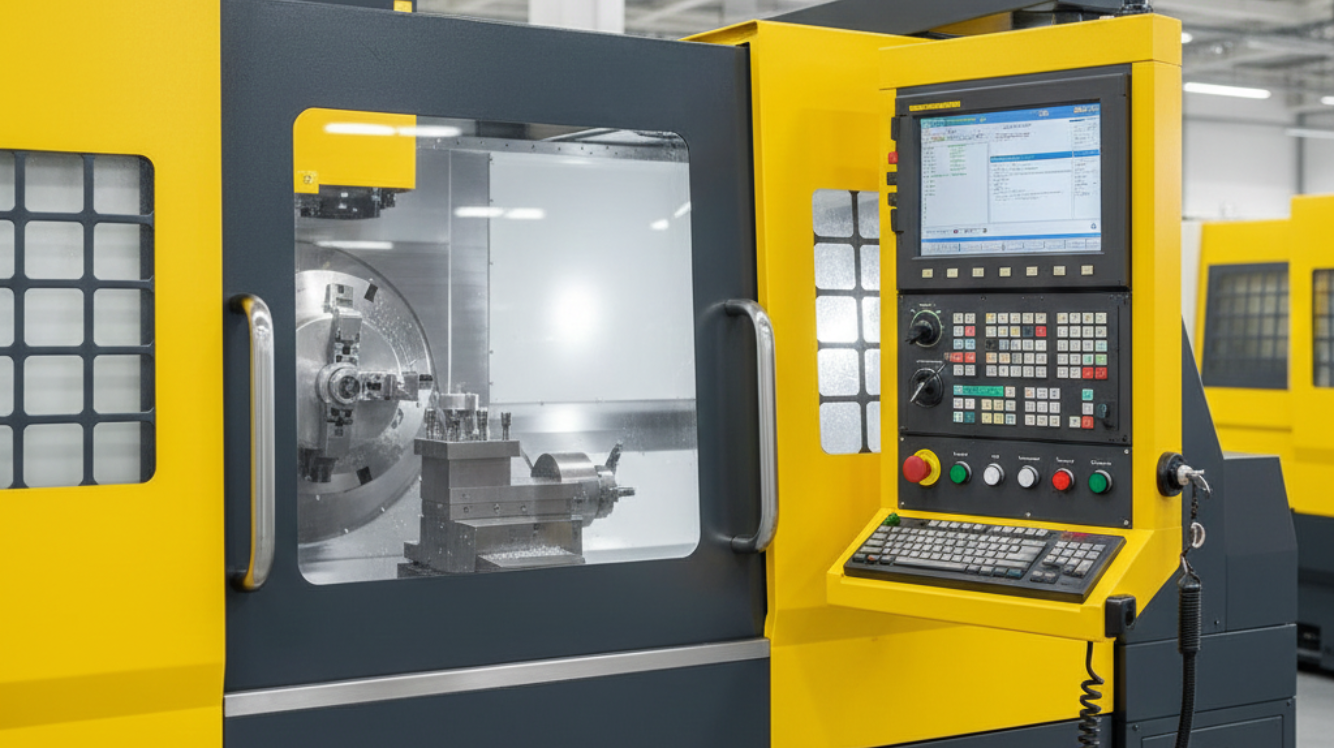
Understand the CNC and VMC machine difference, their functions, applications, and which one suits your machining needs. A clear and simple comparison.
Know More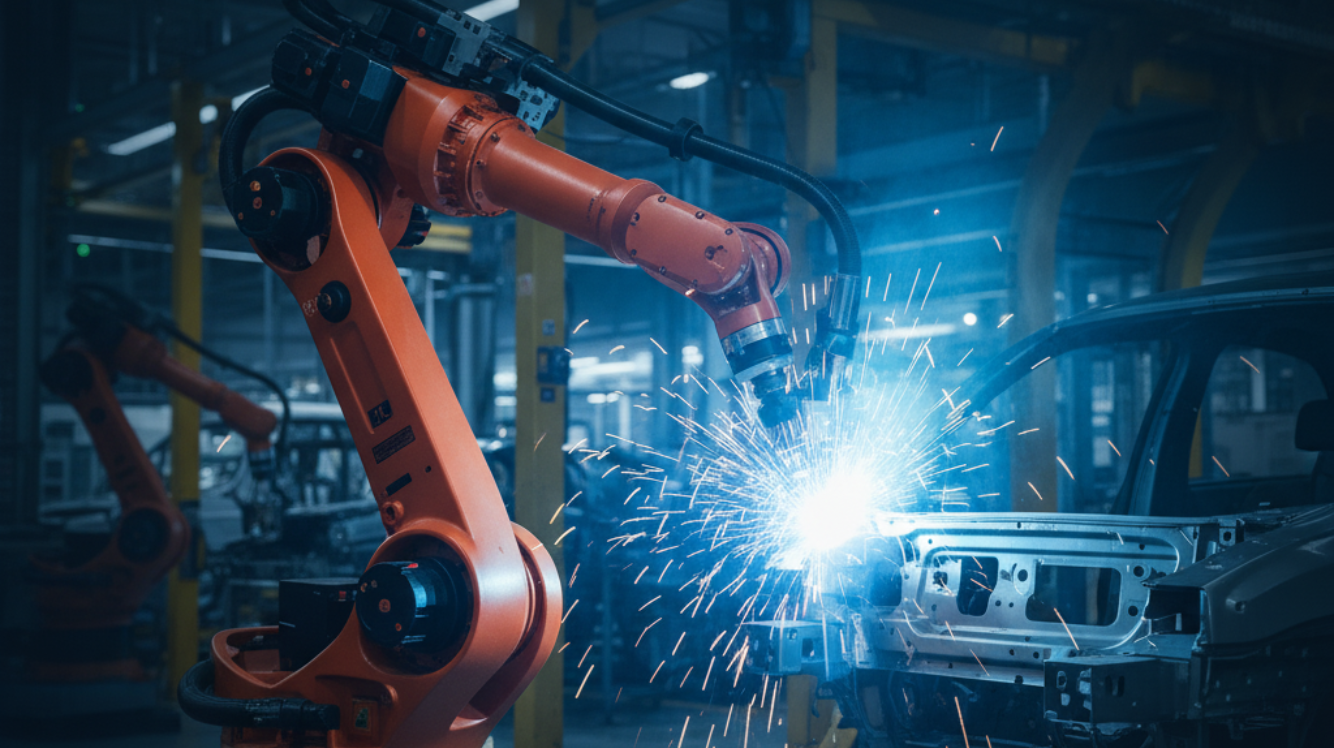
Understand the main types of industrial robots — articulated, SCARA, delta, and cobots. Learn their applications, advantages, and impact on modern manufacturing
Know More
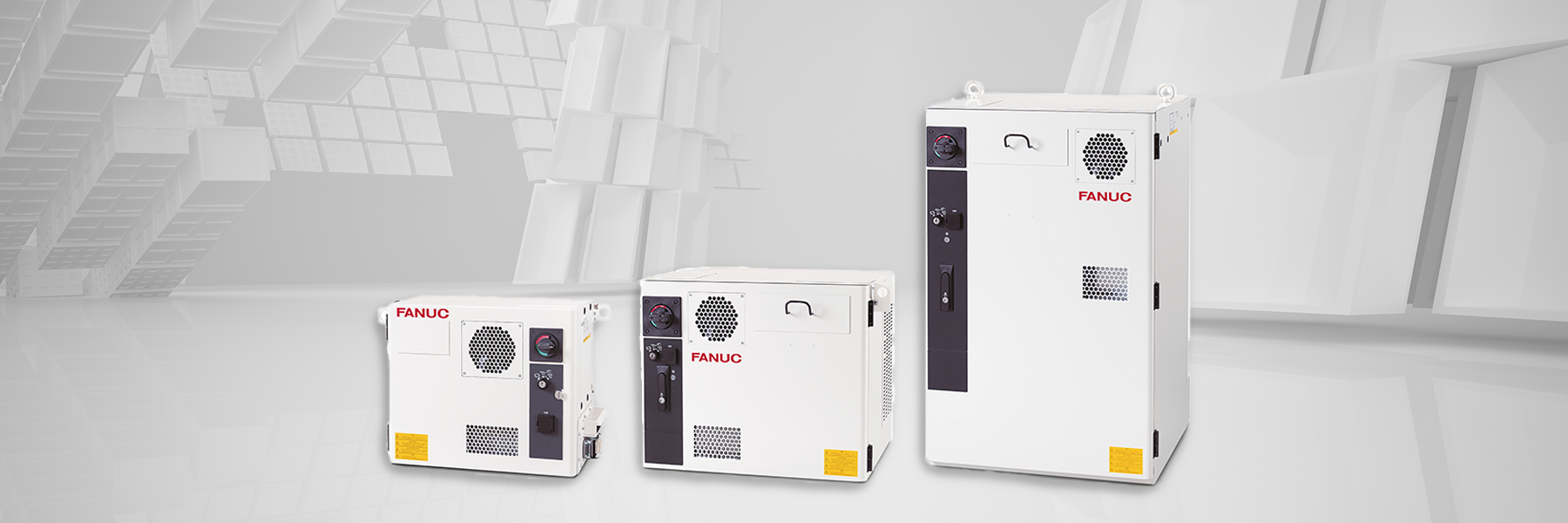
.png)